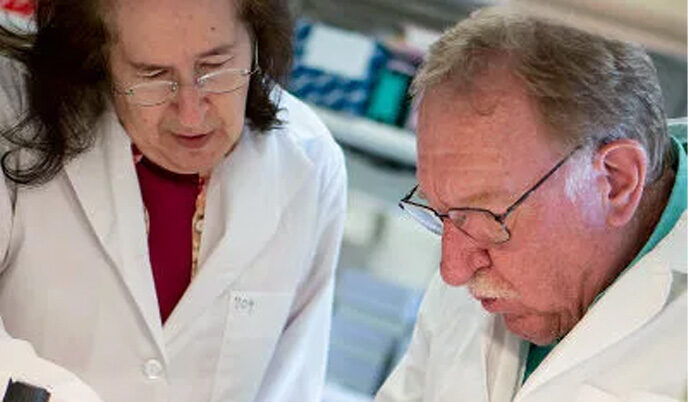
Conference Highlights UW Oncogenic Virus Research
The Memorial Union at the University of Wisconsin–Madison was teeming earlier this year with nearly 500 tumor virology researchers from throughout the world — eager to learn from peers, including a collegial group of UW–Madison researchers who are dedicated to investigating cancer-causing viruses.
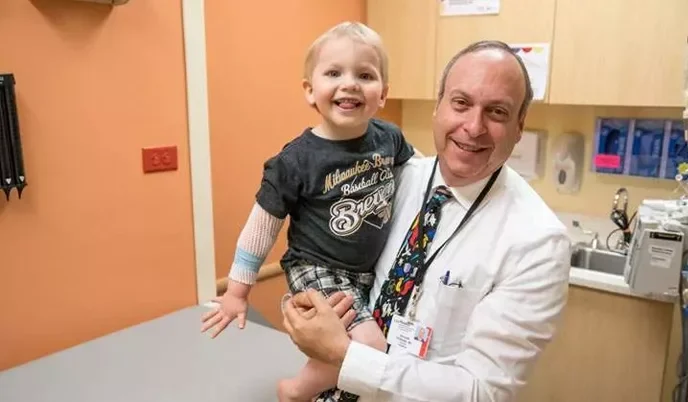
First Successful Bone Marrow Transplant Led to Today’s Immunotherapies
Fifty years ago, School of Medicine and Public Health Professor Fritz Bach (pictured) and University of Minnesota Professor Robert Good performed the first successful bone marrow transplants, made possible by Bach’s earlier research findings. One year later, Paul Sondel, then a young, inquisitive undergraduate student joined Bach’s lab and, with colleagues, has carried the torch to further the field of immunotherapy ever since.
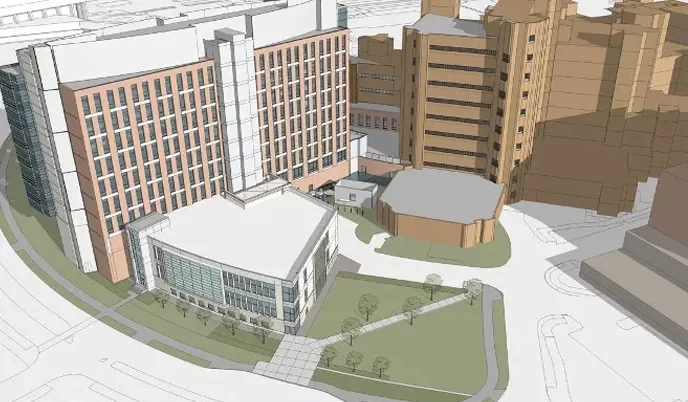
New Center Taking Precision Medicine and Genomics to the Next Level
Stephen Meyn, MD, PhD, recently joined the School of Medicine and Public Health to lead the UW Center for Human Genomics and Precision Medicine. Meyn is developing a strategic vision for the center, guiding the formation of its clinical and academic programs and crafting its long-term mission to become an innovative global leader in genome-based precision medicine.

Supporting Epilepsy Research
Lily's Fund for Epilepsy Research has blossomed from one family's donation into an endowment that has awarded $450,000 in grants to support scientists and studies at UW–Madison. For researchers like Avtar Roopra, the funding has been a game changer.

Sleep Researchers Walking Conversations Help Foster Research Breakthroughs
Every morning, sleep researchers Chiara Cirelli, MD, PhD, and Giulio Tononi, MD, PhD, have a routine that is as Italian as they are, and as Wisconsin as their log home in southwestern Dane County.
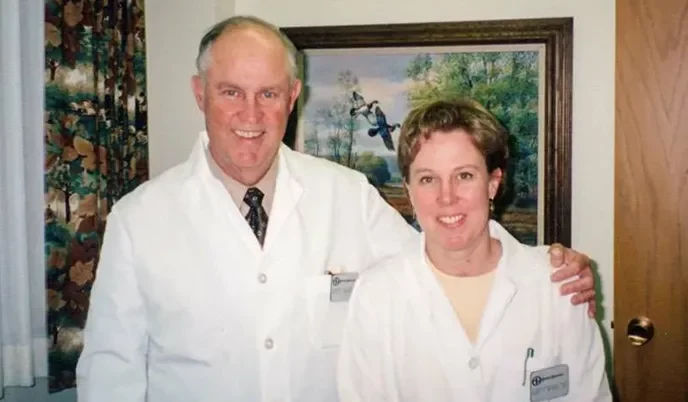
Father-Daughter Teamwork, Morris Family’s Passion Help Establish Institute That Keeps on Giving
The legacy of David Morris, MD '54, lives on through his daughter's work and a respiratory research center that bears his name.
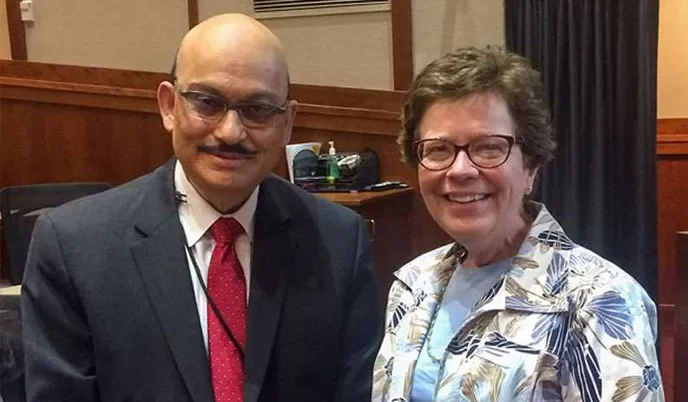
Science of Successful Aging Summit Features Research Advances
The University of Wisconsin School of Medicine and Public Health and Division of Geriatrics and Gerontology, Department of Medicine hosted the Science of Successful Aging Summit: The Aging Brain and Dementia at UW–Madison.
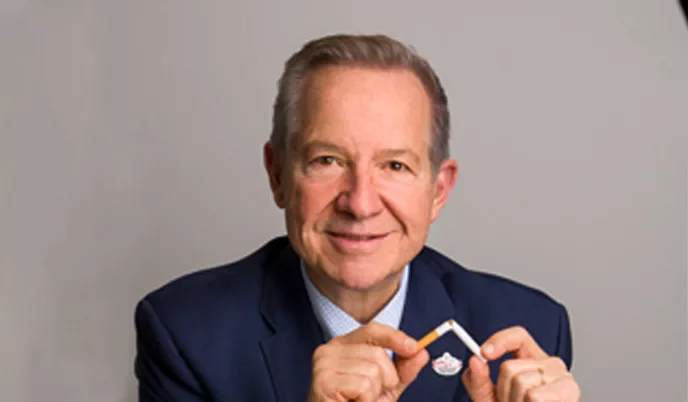
Tobacco Addiction: Tracking America’s Deadliest Killer
Mike Eheler didn’t want to die and leave his wife and four kids without him. Like most smokers, he became addicted as a kid. He had smoked for 23 years, his grandmother had died from lung cancer, and now he could feel the toll on his health — and on his ability to support his family in the way he’d dreamed. It was slipping away, one $7 pack of carcinogens at a time.
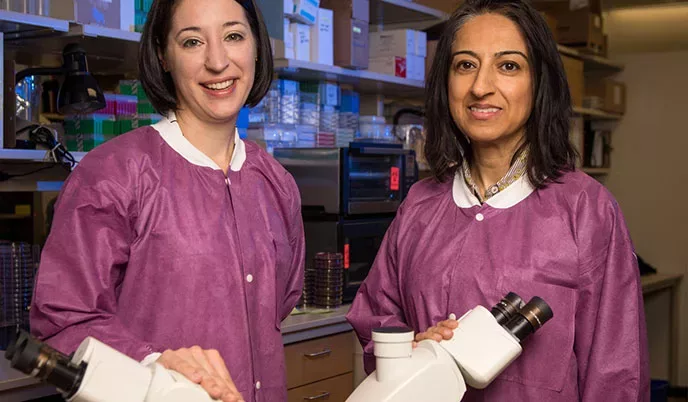
New Line of Research Takes Guts
“You know, if you’re going to poop anyway, you might as well get paid for it!”

SPORE Grant Bolsters Cancer Treatment Research
In recent years, a light often burned late in a Department of Human Oncology office at the University of Wisconsin School of Medicine and Public Health. There, you’d find Department Chair Paul Harari, MD, toiling over a project that resembled Sisyphus’s mythical task: rolling a boulder up a hill, only to have it come crashing down.

Advances in Asthma
When I started caring for asthma patients, children and adults with this condition didn’t do physical activity. Students got doctors’ notes to sit out of physical education classes,” recalls William Busse, MD ’66, who began his medical career in allergy at a military hospital near Seattle in the late 1960s.
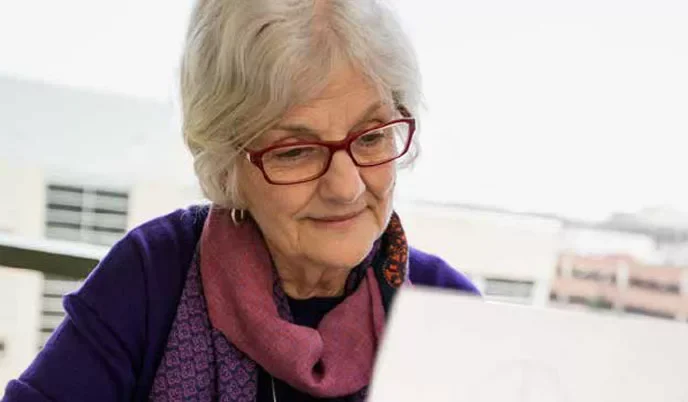
Team Approach to Alzheimer's Disease Furthers Prevention, Diagnosis and Treatment
Over the past decade, as part of the Wisconsin Registry for Alzheimer’s Prevention (WRAP) study, Sigrid Knuti has given blood and spinal fluid, run on treadmills, had her brain imaged and participated in timed memory tests so difficult they sometimes made her cry.